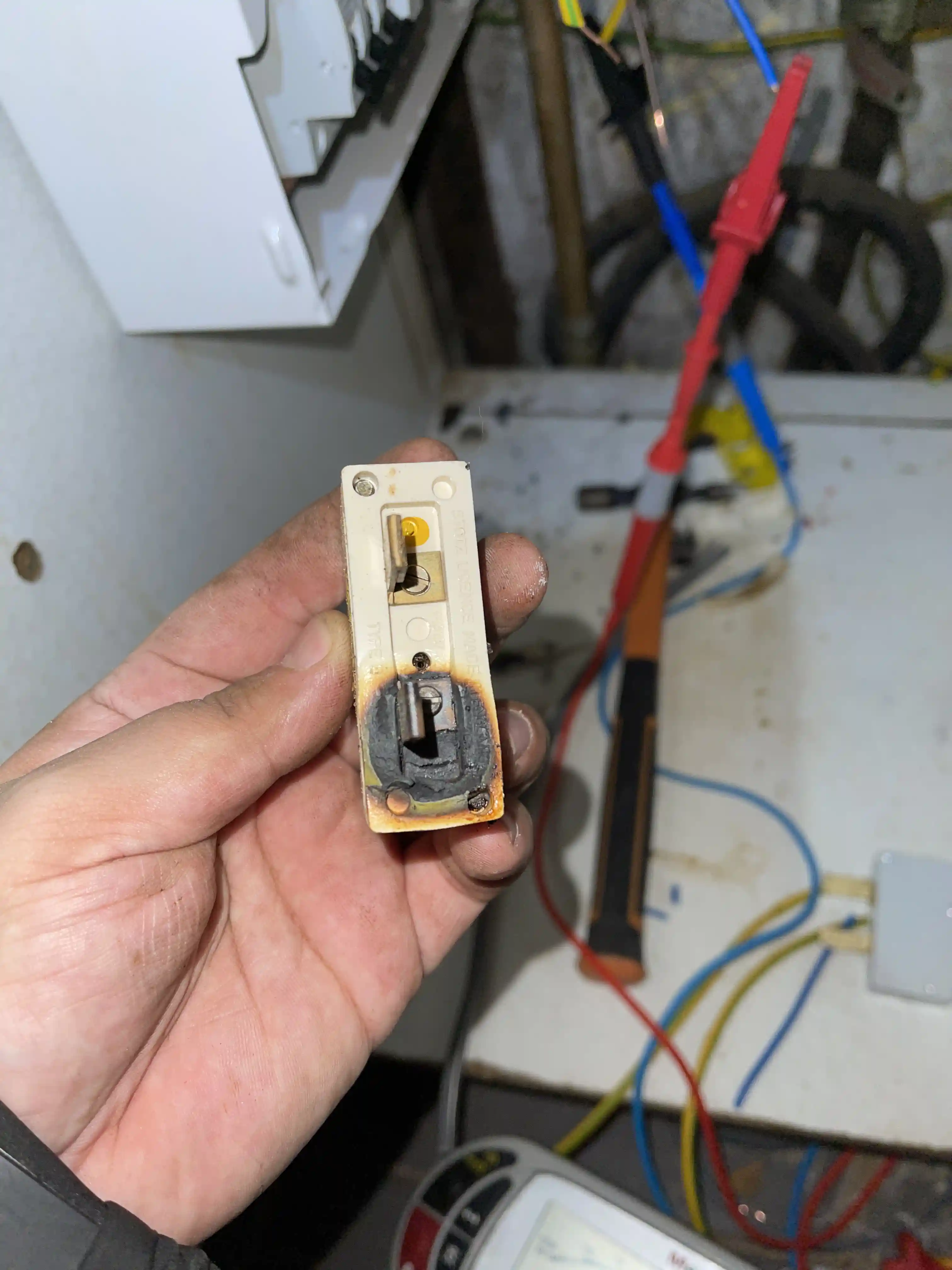Open 24 hours a day, 7 days a week, 365 days a year. We reach you within 30 minutes of your initial contact with our team. Our expert commercial and domestic engineers are fully qualified by City & Guilds to solve emergency problems.
Call Now 02034881842
An electric hot water boiler is a reliable and efficient way to provide hot water for your home's various needs. Whether it's for showers cooking or heating this system ensures a constant supply of hot water. Here's what you need to know about electric hot water boilers:
Professional services can handle the installation of your electric hot water boiler. This includes connecting the unit to the electrical supply integrating it with your plumbing system and ensuring proper insulation for energy efficiency.
Electric hot water boilers are known for their energy efficiency. They convert almost all the energy they consume into heat making them a cost-effective option for heating water. Professionals can provide advice on optimizing your system for maximum efficiency.
Electric hot water boilers offer precise temperature control allowing you to set and maintain the desired water temperature. This feature ensures that you have hot water at the right temperature whenever you need it.
Regular maintenance is crucial for the optimal performance of your electric hot water boiler. Professionals can conduct routine checks flush the system and address any potential issues. In case of malfunctions they can perform repairs to keep your system running smoothly.
Modern electric hot water boilers come with safety features to prevent issues such as overheating. Professionals ensure that these safety features are functioning correctly to provide a reliable and secure hot water supply.
In case of unexpected breakdowns or issues with your hot water boiler professional services often offer emergency assistance. This ensures that you can quickly restore hot water to your home especially during colder seasons.
If you're looking to upgrade your hot water system or if your current boiler needs replacement professionals can guide you in selecting a suitable unit. They handle the removal of the old boiler and the installation of the new one ensuring a seamless transition.
By choosing professional services for your electric hot water boiler you ensure a reliable and efficient hot water supply for your home. These services contribute to the longevity of your system and provide peace of mind knowing that you have a consistent source of hot water for your daily needs.

£30 call-out fee
Competitive Call out fee

Quick response
We can dispatch Our engineer fast to your property within time of 30-90 minutes of your call, and we are available 24/7 365 days.

Payment upon completion of work
We never request payment upfront. With our service, you only pay when you're completely satisfied.

Certified
Our electricians come highly recommended by numerous satisfied customers. Additionally, we hold certifications from esteemed industry trade bodies.
Reach out to us
Choose a suitable appointment
Our engineer is on the way to resolve the issue

We are offering 24-hour a day chat support on the web. Please click the button below to chat with one of our representatives.
Click to Chat With Us
We are offering a 10% discount for the volunteers and workers of the following organizations:
Power Cut
Panel Repair
Fuse Box is Tripping
Power Restoration
Socket and Switch Relocation or Repair
Burglar alarm
Carbon monoxide alarms
Fire alarm
Door entry system
Electric boiler
Underfloor heating
Night storage heaters
Radiator
Heating
Air conditioning
Hot water boiler
Power shower
Storage heater and hot water immersion heater
Hot water cylinder
Immersion heater
Smart thermostats
Hot tub wiring services
Automated gates
Electric shower
Rewiring
3-phase electrics
Car charger
Consumer unit replacement
Fuse box upgrade
In case of electrical problems, call an emergency electrician for fast response to your emergency call, ensuring safety regulations and NICEIC approved quality for a range of electrical services including electrical installations, fault finding, and handling electrical faults such as power outages, electrical fires, or issues with heating electrics; our emergency services cover both domestic and commercial properties, with our emergency plumber ready to assist and guarantee customer satisfaction in home services—company number provided for all your electrical system needs. In the event of an electrical emergency, our emergency electricians are ready to handle all electrical emergencies, whether it's a power outage, electrical fire, or issues with your fuse box or consumer unit. We offer competitive rates for all electrical work, ensuring excellent electrical safety and installation condition for both domestic electrical and commercial electrical needs. As an approved contractor, we pride ourselves on top-tier customer service and reliability.
We provide and handle emergency electrician services as company Grip Electric Limited in Area.
In electrical emergencies, our professional emergency electricians provide top-notch emergency electrical services. Whether it's an electrical emergency with a consumer unit, electrical work, or other electrical issues, our emergency services are designed to handle all types of electrical emergencies efficiently.
£63 per 15 minutes**
Signs that you need to call the electricity supplier rather than an Grip Electric Limited
If
1. All of your switches are up and not tripped in the Fusebox or consumer unit.
2. Check your meter as well that it's topped up,
3. Then, you will need to call an electricity supplier rather than an emergency electrician. Here is a comprehensive list of electricity suppliers and their contact details that we have prepared for you
British Gas, E.ON, EDF Energy, npower, Scottish Power, SSE, SSE Southern Electric, Bulb
Please dial 105 for nationwide electricity supplies UK power network and press 2 for power cuts. If they suggest that you need an emergency electrician, then give us a call or chat with the support team. An emergency electrician will be arranged within 30 minutes. If you are in an area that is not covered, search online for an emergency electrician near me, and you will be able to find someone very close to you.

Terms and conditions
15 minutes service charge applies first hour and all prices are excluding VAT materials